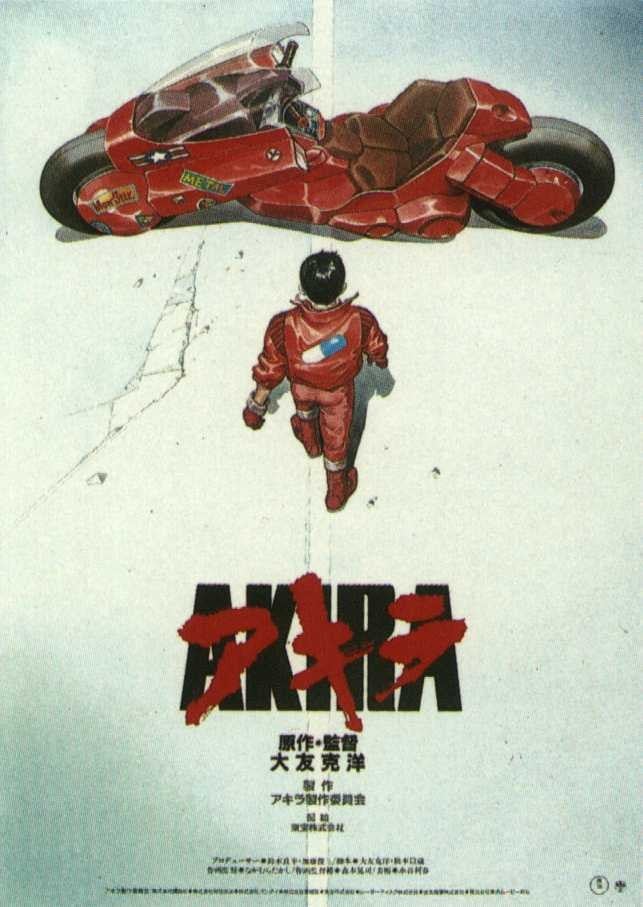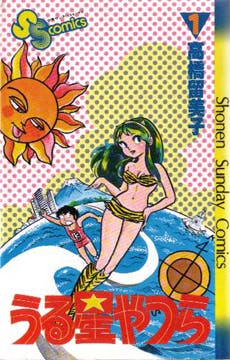Is there a true list of must-watch anime? Given the diversity and longevity of anime as a genre, it’s a tough claim to make. That’s probably why the guys at FrontRowCrew, hosts of the GeekNights podcast, are making it. At a full afternoon panel at Anime Boston Friday, Rym and Scott gave us their guide to landmark anime series and films that shaped and influenced the medium. These are the gold standard for their particular genres.
The hosts professed an affection for shows that aired on the Sci-Fi channel as they grew up—shows that, like RoboTech and Akira, were among the first works of anime to find fans across the pond.
Some of the titles below are obvious classics, while others are lesser-known influencers. What do you think? Is this the ultimate list of fundamental anime?
Cowboy Bebop
The masterpiece of the medium, the jewel of cross-genre hybrids, and according to Rym and Scott, “the only reason we care about Space Dandy.”
Neon Genesis Evangelion
Eva was the mecha anime that became so much more, a confusing, consternating masterpiece of mindfuckery and heartbreak. “There’s a reason why they’re remaking it for the third time,” said Scott, speaking of the recent film adaptation releases, which broke box office records in Japan. “There’s a reason why it won’t go away EVER.”
Akira
This landmark film got an entire generation of Americans interested in anime. “Akira is the reason all of us are here,” Scott said.

Photo via Wikimedia Commons
Hayao Miyazaki and Studio Ghibli
“Miyazaki is the Walt Disney of Japan,” said Scott. “Watch all of his films. Watch all of the Ghibli films.” “Except Earthsea,” added Rym. “Nobody’s perfect,” acknowledged Scott. (Earthsea was Studio Ghibli film directed by Miyazaki’s son, Gor? Miyazaki.)
Gundam Wing
Calling this franchise “fundamental” feels redundant, since it’s not only one of the most famous anime in history but among the true early classic mecha series that’s still being spun off and continued almost four decades after Mobile Suit Gundam first appeared in 1979.
Revolutionary Girl Utena
Although Rym and Scott inexplicably labeled this classic series “obscure,” Utena both galvanized the “magical girl” genre and served as the inspiration for countless series in its wake, including the current hit Kill La Kill.
Escaflowne
Another “kind of forgotten” classic, Escaflowne was an important contribution to the mecha genre of anime that effortlessly blended sci-fi and fantasy and, of course, giant robots.
Princess Tutu
This underrated magical girl classic has gained a strong cult following over the years, probably because when people actually watch it they realize that “it’s not about what you think it’s about,” Scott said. What it’s actually about is ballet, but Tutu blends metafictional elements and strong coming-of-age themes to become so much more.
Dominion Tank Police
This short series was the first to ever be sold directly on video, which made it one of the earliest anime series to make waves in the U.S. Created by Masamune Shirow (Ghost in the Shell), its distinctive and exaggerated female bodies are Japan’s answer to the sexy women of comic books.
Memories
This anthology film features a collection of three different stories by masters of the medium, including Satoshi Kon and Akira creator Katsuhiro Otomo.
Damekko Doubutsu (Useless Animals)
One of the only anime on Rym and Scott’s list that was created in the 21st century, this series features extremely short episodes of just a few minutes each. While adopted by some anime series that are popular in the U.S., like Hetalia, the short-format anime is a staple of Japanese culture.
Macross
Although this famous series was one of the original inspirations for Robotech, over time Macross has outlasted its Western adaptation to become widely considered one of the best mecha anime ever made. As a bonus, the soundtrack is amazing.
Astroboy
The most famous of the many series by legendary Osamu Tezuka, Astroboy was the series that more or less invented anime as we know it, and it’s still one of the best.
Ghost in the Shell
Although not all of this stellar franchise is as brilliant as the 1995 film, 2002’s Stand Alone Complex gives it a run for its money, and all of the adaptations are worth watching. Even if you’re not a fan of Matrix-style dystopic sci-fi, Ghost in the Shell stands alongside Blade Runner and other cyberpunk masterpieces in the best of the canon.
Vampire Hunter D
Although its reputation has diminished over time, this massively popular anime was a Rym and Scott favorite when they were kids. “This started everyone’s anime fandom,” Scott said.
Urusei Yatsura
This short offering from legendary manga creator Rumiko Takahashi (Ranma ½) was the first series to begin the common practice of incorporating pop songs into opening and closing sequences. Its film adaptations, particularly the second, Beautiful Dreamer, are widely admired.

Photo via Wikimedia Commons
Giant Robo
While most legends inspire homages, this one was the homage—an early form of remix culture that rose out of weird copyright issues. When artist and director Yasuhiro Imagawa began working on an animated film adaptation of this ’60s classic manga, he was forbidden from working with any of the minor characters in the original storyline. So in a moment of brilliance, he simply borrowed other characters from other series by the manga author Mitsuteru Yokoyama, combining his epic giant robot battles with a retro-futuristic design and a killer symphonic score. The result is one of the best OVA series ever made.
The films of Satoshi Kon
Though less famous than Miyazaki, the complete works of Satoshi Kon read like a master class in brilliant, brain-breaking anime: Perfect Blue. Paprika. Tokyo Godfathers. Milennium Actress. Paranoia Agent. Kon’s filmography occupies a special place in the annals of anime. Kon also worked on early influential series like JoJo. His death at the age of 46 in 2010 sent shock waves across the world of animation.
They Were Eleven
It’s Space Harvard! Also it’s an early, influential but little-known landmark of shoujo anime that’s held its own surprisingly well since it appeared in the ’70s.
Galaxy Express 999
This early shounen anime is based on an award-winning manga and could be viewed as early steampunk. The titular galaxy express is a space train. As a bonus, it’s probably the only anime in history with the distinction of being adapted into a film by B-movie legend Roger Corman.
The Castle of Cagliostro and the entire Lupin canon
It’s almost impossible to explain how popular Lupin is in Japan, but the tale of Arsène Lupin, French writer Maurice Leblanc’s famous gentleman thief, has become a cultural staple there. In 1967, Kazuhiko Kato created the manga Lupin III, the story of Lupin’s grandson and his gang of thieves. The original series ran five years and spawned three anime series, six films (OVAs). and 20 video games. The second OVA, Castle of Cagliostro, has the distinction of being the directorial debut of Hayao Miyazaki, who, as he would do for the rest of his career, also worked on the screenplay.
Fist of the North Star
This classic shounen anime was an early hit for Shonen Jump and one that invented many tropes of the genre.
Daicon IV: the Opening Animation
This legendary fanvid astonished the world when it premiered as part of the convention DaiCon, The year before, the same animation team had worked on an opening short film for DaiCon III. But the animation for Diacon IV proved both seminal and prophetic: all of the fanboys who worked on it went on to become important members of the animation industry, and director Hiroyuki Yamagi went on to found Gainax, the legendary studio that gave the world Evangelion.
Illustration by elsakroese/deviantART (CC BY-SA-3.0)


